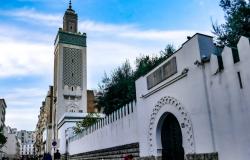By Axel Nodinot, L’Humanité, France, Wednesday December 11, 2024
Suggested reading by André Cloutier
The Nobel Prize winner for literature was melancholy. She looked back on her journey in front of an audience who acclaimed the first South Korean to be celebrated in this way, only the 18th woman in 117 editions. Not disorientated by the Swedish cold, the Seoulite however escaped the snow.
Omnipresent in his works, the snowflakes cover everything. Noise, to give way to contemplation or anguish; the memories, buried deep within the characters; the corpses, those of the South Korean military dictatorships.
« Inevitably, the work of reading and writing literature is opposed to everything that destroys life “, she declared when receiving her prize this Wednesday, December 11 in Stockholm. Throughout his work, Han Kang nevertheless managed to unearth, delicately and poetically, atrocities that no formula could brighten up. The candor of its heroines and the raw cruelty of the story then intertwine: under the snow, the burned ruins, the frozen earth, and the bones reveal so many dramatic stories.
« In my twenties, I wrote these lines on the first page of every new diary: Can the present help the past? Can the living save the dead ? “, she recalled in Stockholm. The writer continues to seek her answers, confronting South Korean society and history head-on, both of which are very harsh.
As in “The Vegetarian”, Booker Prize in 2016, “The One Who Comes Back”, where she evokes the murdered students of Gwangju, her hometown, and “Impossible Farewells”, which takes place on the island of Jeju, where 30,000 people accused of being communists were massacred by the army and the American command.
*****
Subscribe to our weekly newsletter – to receive all the links to access the articles published each week.
Every week, PTAG publishes new articles in its different sections (economy, environment, politics, social movements, international news, etc.). The weekly letter sends you by email the links which allow you to access these articles.
Fill out the form below and click on this button to subscribe to the PTAG newsletter:
Subscribe to the letter
Do you know the PAFI program? PAFI for financial assistance program for investment.





